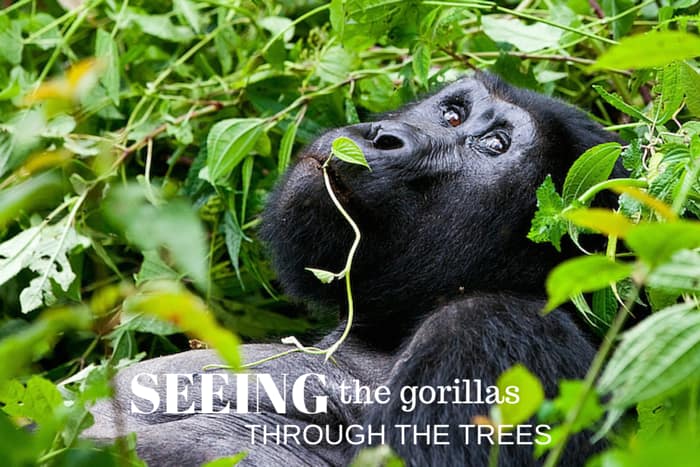Our friends, Sandie and Jean came over for dinner last night. Jean was doing some recording with Dave for the Carnegie Coach podcast, while Sandie and I hung out with the kids.
Our son, Luke, was pretty antsy from an exciting day with his Grandparents, who are visiting. A book seemed in order, to calm him down and possibly also to entertain Sandie.
I had recently bought him the book Wangari’s Trees of Peace: A True Story from Africa, by Jeanette Winter. Here’s the book’s plot, from the publisher’s description:
This true story of Wangari Maathai, environmentalist and winner of the Nobel Peace Prize, is a shining example of how one woman's passion, vision, and determination inspired great change.
The author makes the story accessible to kids as she describes Wangari's opposition to the trees that were cut down in Kenya, to make room for buildings.
An entirely different meaning
Since this was not the first time Luke was hearing the story, I asked him questions, as we went along, about what was about to happen next. I inquired as to what had happened to all the beautiful green trees in Kenya, as we flipped to a page with lots of tree trunks, but no lush green branches.
Someone trimmed them,” Luke replied.
He was using the most commonly-used vocabulary around here for what happens to trees. It’s actually quite an exhilarating event, for an almost three year-old.
Landscapers from our community come around every few months and trim the trees.
I found out that we have nearly double the amount of trees where we live than they do in Central Park. The tree trimmers climb up on tall ladders and make quite a ruckus.
It’s got everything that Luke loves in life: noise, green, climbing, and people.
Of course, in Kenya, they weren’t doing trimming. Their work was not designed to make the trees more beautiful and healthy, but to destroy them. They had cut down all the trees, to make room for new construction.
I didn’t correct Luke’s use of the word trimming, but replaced it with the accurate word as I repeated back to him mostly what I had heard him say.
I responded to Luke that, “Yes, they had cut down the trees and now the green was gone, and so were the birds who had made their homes in the trees.”
After a few times of me using the word “cutting,” he seemed to be able to distinguish between trimming and chopping down trees. I never would have realized that there was any confusion, if I hadn’t been asking questions along the way.
This happens to us all the time in the classroom, though the potential for us to completely miss it is significant.
Attention blindness
Dr. Cathy Davidson, my guest on episode 28, shared with us about the experiments done on attention blindness. As Dr. Davidson describes on Inside Higher Ed:
…this famous experiment is a video of six people passing a basketball, half in white and half in black shirts.
Subjects are asked to count how many times the ball is passed only to and from those wearing black, not white, and then are quizzed on the number of passes they counted. What over half of subjects in a normal testing situation miss is a woman in a gorilla suit who walks in among the tossers for a full nine seconds, stares into the camera, and walks away.
The experiment is designed to show us what we normally cannot see about ourselves: how paying attention in a focused way requires us to shut out everything else — even a gorilla.
If you would like more information about attention blindness, including a video of Harvard’s invisible gorilla experiment, Brain Pickings did a nice job overviewing Dr. Davidson’s book and research.
When we learn about the gorilla experiment, or watch the video, having already received the spoiler, it’s easy to think that we are somehow different. That we wouldn’t have been among those who would have missed the gorilla, if we had been one of the subjects in the study.
But that kind of thinking can limit our potential and hinder our growth. Dr. Davidson has inspired me to dig in even more than usual on what I might be missing in my teaching throughout 2015.
Now what?
We read to children far better than some of us teach. Our challenge is to constantly be assessing where there may be gaps in our students’ understanding and help challenge them to apply what they are learning.
If we don’t turn the page and stop to ask them what happens next, we can all to easily be left thinking they have mastered the material in the same way that we perceive we have. I'm thankful for the Teaching in Higher Ed podcast guests who are open to exposing us to new ideas that challenge the way we have been doing things and help us reach new heights.
[reminder]What will you to doing in 2015 to look for the gorillas in your teaching?[/reminder]



I’ve been thinking about doing an online feedback from three times during the semester. I’ve been reading about how unreliable the end of semester evaluations are for professors. Students are hurried and there’s nothing in it for them as they’ve just finished the course. Any ideas?